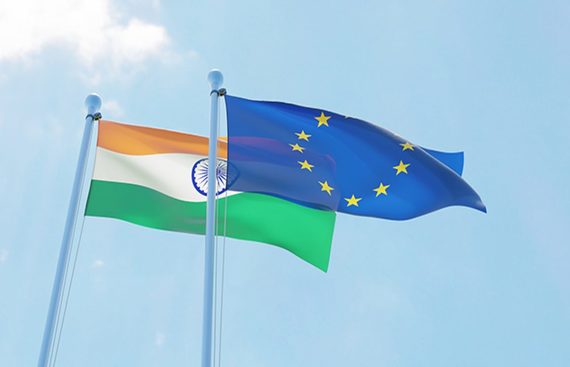EU, India Strategize Global Infrastructure Pact

The EU and India are looking forward to develop a joint infrastructure projects across the world in the most recent attempt to compete with China’s Belt and Road Initiative.
The partnership connectivity in sectors also includes energy, digital and transport, would plans to offer better legal safeguards and less onerous debt terms than those offered by Beijing, says diplomats.
“There is now a window of opportunity to team up and create the environment for a globalisation based on partnership that would be more attractive than what China can offer,” says one EU diplomat. “The EU and its allies have a common interest here in presenting an alternative to the Belt and Road Initiative, rather than allowing Chinese investment to dominate,” he adds.
Furthermore, the India-EU work would focus on joint projects in their own territories, measures in third countries, and setting standards in areas such as financial sustainability and rule of law benchmarks, diplomats added. Added focus would be on improving co-operation in research and innovation.
The EU confirmed the India-EU talks, insisting plans for linking Europe and Asia were an “inclusive platform open for co-operation with all partners” and were not directed “against any other country or region”.
China’s BRI, spearheaded by president Xi Jinping’s administration in 2013, has stoked unease as Beijing pursued projects involving roads, railways, bridges and ports.
The BRI’s wide-ranging framework has been endorsed by more than 150 states and international organisations, including more than half the EU’s 27 nations. But it has also faced a backlash, including over environmental standards, the debt recipient countries take on, and penalties they face if they fail to repay.
The EU and India agreed in July to explore their own initiative to “seek synergies between their co-operation on connectivity with third countries including in the Indo-Pacific region”.
The EU set up a similar partnership in 2019 with Japan to build what Shinzo Abe, then premier in Tokyo, hailed as “sustainable, rules-based connectivity from the Indo-Pacific to the Western Balkans and Africa”.
The plan may end up on the agenda of June’s G7 summit to be hosted by Johnson in the UK. The group, comprising the US, UK, Japan, France, Germany, Italy and Canada has invited counterparts from India, Australia and South Korea to attend.
